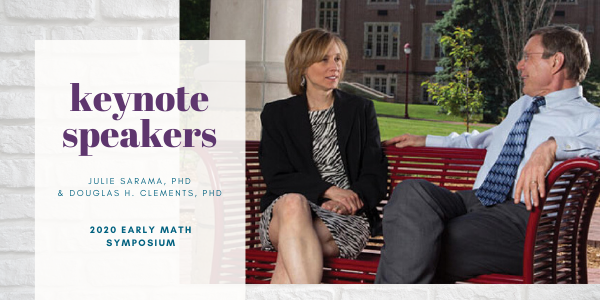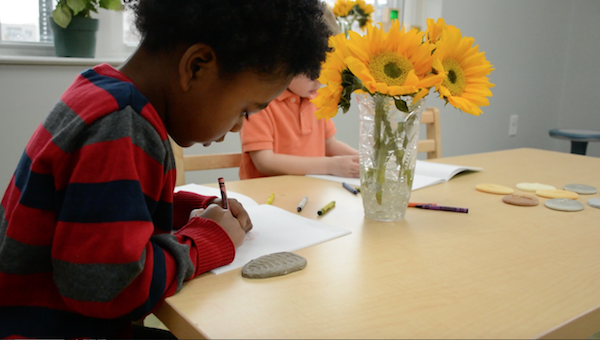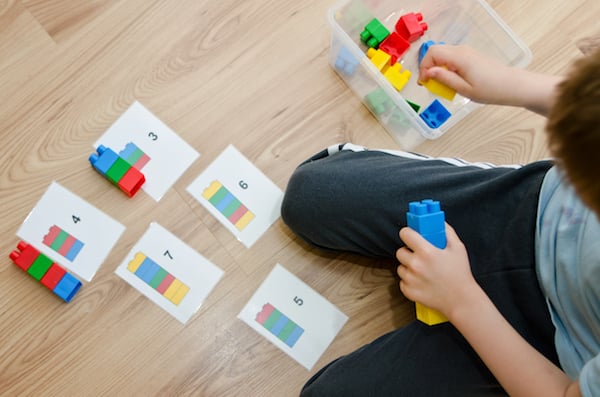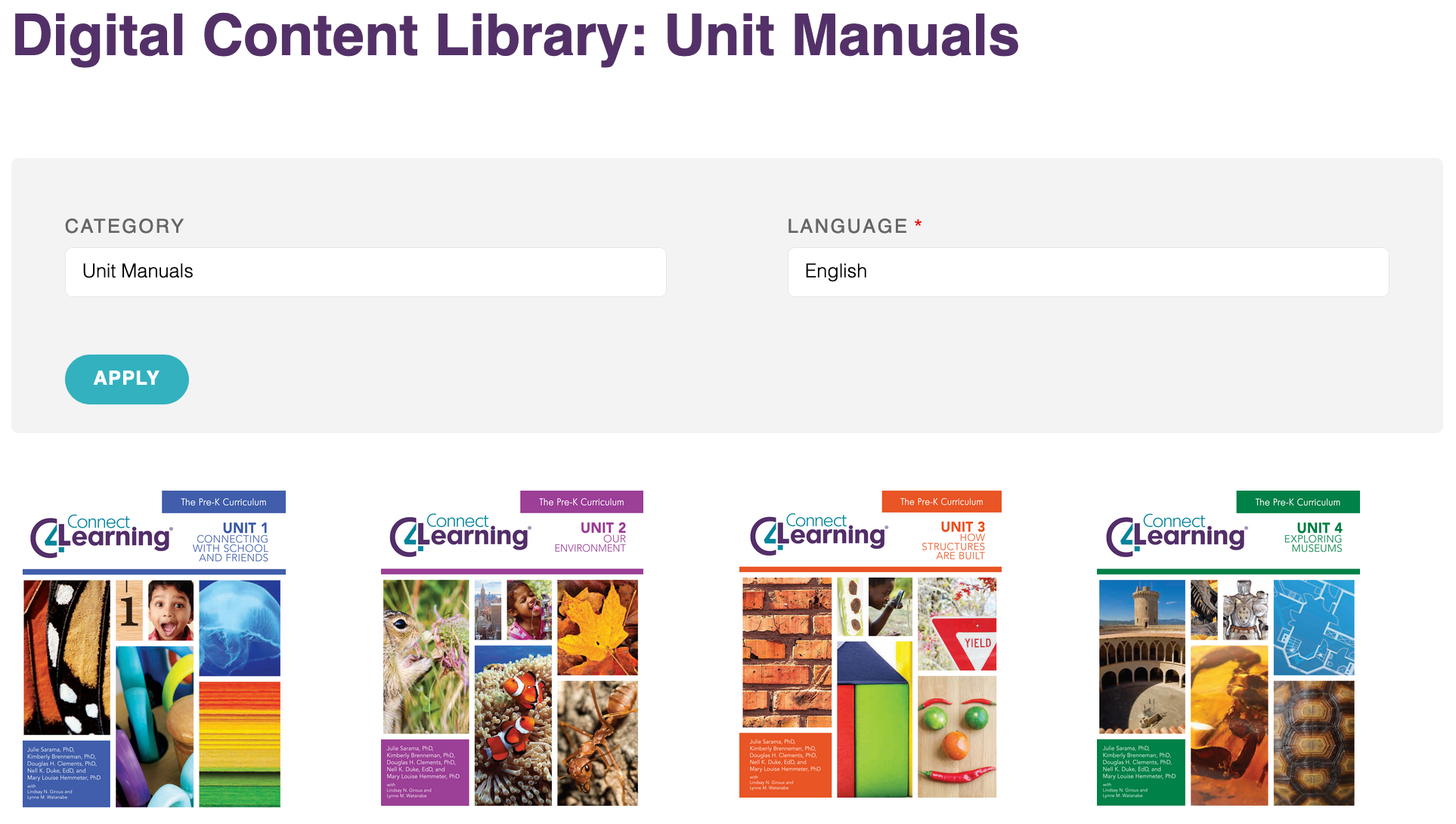
Early Math Symposium with Julie Sarama, PhD, and Douglas H. Clements, PhD
Julie Sarama, PhD, and Douglas H. Clements, PhD, two of five early childhood experts who researched and wrote Connect4Learning: The Pre-K Curriculum, will be featured keynote speakers at the Virtual Early Math Symposium on Friday, June 26.
Their presentation to the symposium’s global audience, “What Counts in Teaching and Learning Early Math? – Learning Trajectories for Young Children,”will address how educators can use daily activities and routines to understand and promote mathematical learning. Their approach, refined through research supported by the National Science Foundation and the Institute of Educational Studies, identifies the math goals, development, and activities—math learning trajectories—in areas such as number, quantity, and geometric and spatial reasoning.
The research of Drs. Sarama and Clements led to two new products: The Learning and Teaching with Learning Trajectories ( [LT]2 ) tool, available at LearningTrajectories.org, and Connect4Learning.
“Learning trajectories are so important to realizing young children’s surprising capability to learn math, and if more educators were aware of how these trajectories work, we believe we could set children up for greater success now and later in life,” said Dr. Sarama. “We greatly appreciate the opportunity to share our findings with fellow researchers and educators at the annual math symposium.”
Based on 20 years of research, the [LT]2tool helps early childhood educators understand how children think and learn about mathematics. The website provides teachers short video clips of children working through the math learning trajectories, in addition to hundreds of classroom activities supporting children’s development. Learning trajectories lay the foundation for Connect4Learning and are at the core of many standards, curricula, and approaches to teaching.
The Early Math Symposium, a professional development opportunity gone virtual for 2020, focuses on fun, creativity, and discovery while supporting the mathematical development of all young children. It is jointly sponsored by the California Department of Education, the California State Board of Education, and other prominent California educational groups.
Join other educational professionals and earn free continuing education (CE) hours for this free virtual professional learning experience on Friday, June 26. Free CE credits will also be available from Fresno Pacific University. Register now!
Julie Sarama, PhD, a principal investigator of Connect4Learning: The Pre-K Curriculum, is the Kennedy Endowed Chair in Innovative Learning Technologies and Distinguished University Professor at the University of Denver. She conducts research on young children's development of mathematical concepts, implementation and scale-up of educational reform, professional development, and implementation and effects of software environments (including those she has created) in mathematics classrooms. She is a prolific and widely cited scholar who has been published in hundreds of publications and has directed 36 externally funded projects from IES, NSF, and the National Institutes of Health (NIH). She has taught secondary mathematics and computer science, gifted math, and methods and content courses for elementary to secondary teachers.
Douglas H. Clements, PhD, a principal investigator of Connect4Learning: The Pre-K Curriculum, is a Distinguished University Professor, Kennedy Endowed Chair in Early Childhood Learning, and Executive Director of the Marsico Institute for Early Learning at the University of Denver. He is a prolific and widely cited scholar who has earned external grant support totaling more than $25 million, including 36 major grants from the NSF, NIH, and IES. He has served on the US President's National Mathematics Advisory Panel, the Common Core State Standards committee of the National Governor’s Association, the Council of Chief State School Officers, the National Research Council’s Committee on Early Mathematics, and the National Council of Teachers of Mathematics national standards committees, and he is a co-author of each of their reports.
Share:


